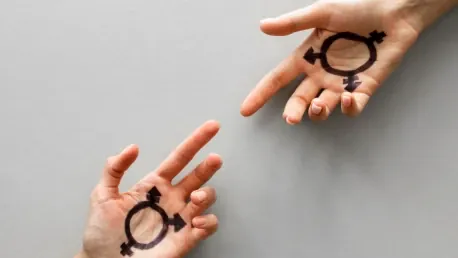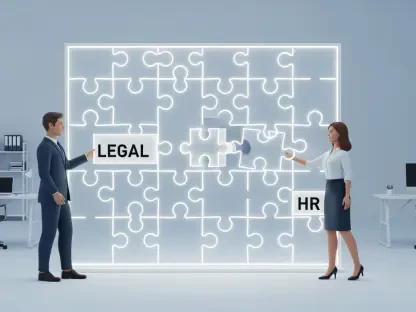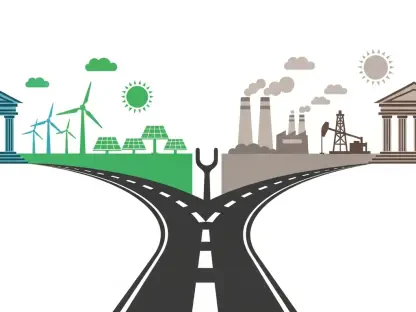The urgent and complex issue of gender equality has seen significant setbacks in women’s rights worldwide. As global leaders prepare for the 69th session of the Commission on the Status of Women (CSW69), the need for immediate and effective actions to dismantle barriers to gender equality is critical. Despite international efforts and commitments, progress on gender equality has been hindered, emphasizing the necessity for renewed urgency and accountability from governments and UN agencies.
The Global Rollback on Women’s Rights
Modern Slavery and Gender Inequality
The alarming global rollback on women’s rights is particularly evident in the context of modern slavery and gender inequality. Women and girls continue to face higher vulnerabilities to forced labor, human trafficking, and child marriage due to factors such as poverty, lack of education, and limited access to healthcare. Despite international commitments like the Beijing+5 platform for action adopted in 2000, progress has been insufficient. These concerning trends call for more than just rhetoric; they demand tangible steps toward ensuring that women’s rights are not just preserved but advanced.
The World Economic Forum estimates that it will take 134 years to achieve full gender parity, a timeline that extends far beyond the 2030 deadline for the Sustainable Development Goals (SDGs). This stark reality underscores the interconnectedness of gender inequality and modern slavery, highlighting the need for immediate and effective measures to eradicate these issues. The grim statistics are compounded by the fact that the progress we have achieved is not only sluggish but also at risk of being undone by regressive policies and societal norms that persist across the globe.
Impact on Sustainable Development Goals
Gender equality is seen as a key accelerator in facilitating the attainment of SDGs set by the United Nations, including SDG Target 8.7. This specific target calls for immediate and effective measures to eradicate forced labor, end modern slavery and human trafficking, and eliminate the worst forms of child labor. Yet, the current pace of progress is distressingly inadequate to achieve these ambitions by the 2030 deadline, with some targets likely to remain unfulfilled for years to come. The broader implications of this tardiness extend beyond individual lives, affecting community well-being and the overall developmental agenda.
The persistent and disproportionate impact of modern slavery on women and girls is a major barrier to achieving these goals. Poverty, limited educational opportunities, and barriers to health services exacerbate the vulnerabilities of women and girls, stalling progress on several fronts. The lack of traction in this area signals the necessity for a renewed emphasis on accountability from global leaders, governments, and international organizations. Only with robust and sustained efforts can we hope to reverse these troubling trends and ensure that gender equality becomes a lived reality for all.
Recent Setbacks in Women’s Rights
Legal Changes and Restrictions
Recent setbacks to women’s rights in various countries underscore the global nature of this issue. For instance, in Iraq, Somalia, and Bangladesh, legal changes have lowered the age of marriage, allowing girls under 18 to marry. These changes have marked implications for the rights and freedoms of women and girls, further entrenching gender inequality. The practice of child marriage not only interrupts education and limits future opportunities but also perpetuates cycles of poverty and domestic violence. In many cases, these legal adjustments have been justified under the guise of cultural traditions or economic necessity, but the real toll is borne by young girls whose futures are abruptly curtailed.
In Afghanistan, the Taliban has imposed severe restrictions on women’s participation in public life, including barring them from attending secondary schools and universities. These restrictions have devastating effects on the education and empowerment of women and girls, undermining decades of progress in gender equality. The rollback is not just a matter of policy but represents a wholesale negation of women’s rights and freedoms. The international community’s response has largely been to issue condemnations and calls for action, but these have done little to alter the distressing reality on the ground. Without concrete and coordinated global interventions, the situation in Afghanistan may well set a dangerous precedent for the region and beyond.
Government Actions and Social Control
In China, the government has increased social control by silencing feminist voices and imposing strict censorship on content related to feminism. This crackdown on women’s rights activists and organizations stifles progress and perpetuates gender inequality, presenting a formidable challenge for advocates pushing for gender parity. The Chinese government’s approach serves as a glaring example of how state apparatus can be mobilized to suppress dissent and uphold patriarchal norms, rather than fostering an environment conducive to gender equality and social justice.
In Poland, the government has targeted women’s rights activists and organizations, utilizing its Constitutional Tribunal to undermine reproductive rights. This is part of a broader strategy to curtail the autonomy and freedoms of women through legal and institutional means. In the United States, legislative changes following recent Supreme Court decisions have significantly reduced access to sexual and reproductive healthcare, including legal abortions. These measures represent a concerning rollback on women’s rights, further eroding the progress made in gender equality. The legal landscape in these countries highlights a troubling trend where women’s rights are increasingly vulnerable to political whims and regressive ideologies.
The Need for Coordinated and Decisive Action
Collaboration and Commitment
To address these challenges, coordinated and decisive action from global leaders, governments, international organizations, and civil society is essential. Collaboration and commitment are necessary to ensure that the goals of gender equality are realized and that the rights and freedoms of women and girls are protected and promoted. Providing a supportive environment for gender equality requires not only policies and regulations but also a willingness to challenge and change deep-seated cultural norms and practices. These efforts need to be continuous and rigorous, engaging stakeholders at all levels from grassroots organizations to multinational entities.
The setbacks witnessed in various parts of the world pose a significant threat to achieving gender equality and the broader SDGs. Despite decades of advocacy and efforts by countless individuals and organizations, the rollback on women’s rights underscores the critical importance of this issue for creating a more just and inclusive future for all. Local and global initiatives need to focus on building sustainable frameworks that systematically dismantle barriers to gender equality, empowering women and girls to claim their rights and fulfill their potential.
Ensuring Progress and Accountability
The critical and multifaceted issue of gender equality has recently experienced notable regressions in women’s rights on a global scale. With preparations underway for the 69th session of the Commission on the Status of Women (CSW69), there is an urgent call for prompt and effective actions to eliminate the obstacles to achieving gender equality. Despite various international efforts and official pledges, the progress towards gender equality has encountered significant roadblocks. These challenges underscore the imperative need for renewed urgency and stronger accountability from both governments and United Nations agencies. Global leaders must prioritize strategies that address these setbacks and commit to concrete measures that ensure that gender equality progresses without further delay. The setbacks have proven that mere commitments are insufficient; there must be tangible, enforceable actions to uphold and advance women’s rights. This crucial moment calls for an unwavering dedication to dismantling all forms of gender-based discrimination, ensuring that future generations inherit a more equitable world.









